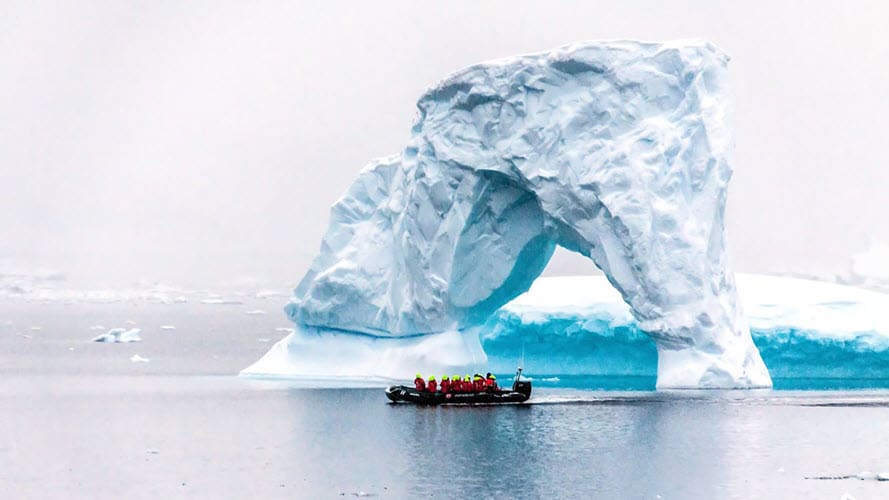Antarctica Day 2024: History, Theme and Significance

Antarctica Day is celebrated on December 1st every year to commemorate the signing of the Antarctic Treaty. This international agreement was signed in 1959 and came into effect in 1961, marking a significant milestone in the preservation and protection of the continent.
History of Antarctica Day
Antarctica Day is celebrated annually on December 1st to mark the anniversary of the signing of the Antarctic Treaty in 1959. This treaty established Antarctica as a scientific preserve, banned military activity on the continent, and set it aside as a zone for peaceful cooperation.
The day was established by the Foundation for the Good Governance of International Spaces in 2010 to highlight the international cooperation that makes the governance of Antarctica possible. It also encourages educators to incorporate Antarctica into their curriculum and promotes awareness about the continent’s unique environment and scientific importance.
Antarctica Day is one of the two principal holidays observed in Antarctica, along with Midwinter Day, which is celebrated in June. While it is more widely celebrated off the continent, Antarctic organizations and individuals with a professional or personal interest in Antarctica often observe the day with public talks, educational activities, and flag flying.
The Theme of Antarctica Day 2024
The theme for Antarctica Day 2024 has not been officially announced yet. However, the day is generally focused on celebrating international cooperation and the unique scientific and environmental significance of Antarctica.
Significance of Antarctica Day
Antarctica Day is celebrated annually on December 1st to commemorate the signing of the Antarctic Treaty in 1959. This treaty is a remarkable agreement among countries that sets aside the continent as a scientific preserve and bans military activity on it. Here’s why Antarctica Day is significant:
- International Cooperation: The Antarctic Treaty represents one of the most successful examples of international cooperation, with countries coming together to ensure that Antarctica is used for peaceful and scientific purposes only.
- Environmental Protection: The day underscores the importance of protecting one of the last great wildernesses on Earth. Antarctica’s unique ecosystem is home to incredible biodiversity, which is safeguarded by the treaty.
- Scientific Research: Antarctica plays a crucial role in global scientific research, particularly in understanding climate change. The continent provides valuable data that helps scientists study the Earth’s climate history and predict future climate trends.
- Raising Awareness: Antarctica Day helps raise awareness about the continent and the ongoing efforts to preserve its pristine environment. It also highlights the need for continued international collaboration to address environmental issues.
- Educational Opportunities: The day encourages educators to incorporate Antarctica into their curriculum, fostering a deeper understanding of the continent’s importance and the role it plays in our planet’s health.
By celebrating Antarctica Day, we honor the spirit of collaboration and commitment to preserving this unique and vital part of our world.
Celebrating Antarctica Day
On Antarctica Day, various events and activities are organized worldwide to raise awareness about the continent’s significance and the need for its preservation. These include educational programs, art exhibitions, film screenings, and virtual tours of research stations. Individuals can also contribute by learning more about Antarctica, supporting organizations dedicated to its conservation, and practicing sustainable habits that reduce our impact on the environment.
Conclusion
Antarctica Day is a time to reflect on the importance of preserving this unique and pristine continent. By celebrating Antarctica Day and promoting awareness about its significance, we can contribute to the ongoing efforts to protect this fragile ecosystem for future generations.
Observation Dates Antarctica Day
Antarctica Day is celebrated on December 1st every year to commemorate the signing of the Antarctic Treaty.
| Year | Date | Day |
| 2019 | 1-Dec-19 | Sunday |
| 2020 | 1-Dec-20 | Tuesday |
| 2021 | 1-Dec-21 | Wednesday |
| 2022 | 1-Dec-22 | Thursday |
| 2023 | 1-Dec-23 | Friday |
| 2024 | 1-Dec-24 | Sunday |
| 2025 | 1-Dec-25 | Monday |
| 2026 | 1-Dec-26 | Tuesday |
| 2027 | 1-Dec-27 | Wednesday |
| 2028 | 1-Dec-28 | Friday |
| 2029 | 1-Dec-29 | Saturday |
Observer Voice is the one stop site for National, International news, Sports, Editor’s Choice, Art/culture contents, Quotes and much more. We also cover historical contents. Historical contents includes World History, Indian History, and what happened today. The website also covers Entertainment across the India and World.

